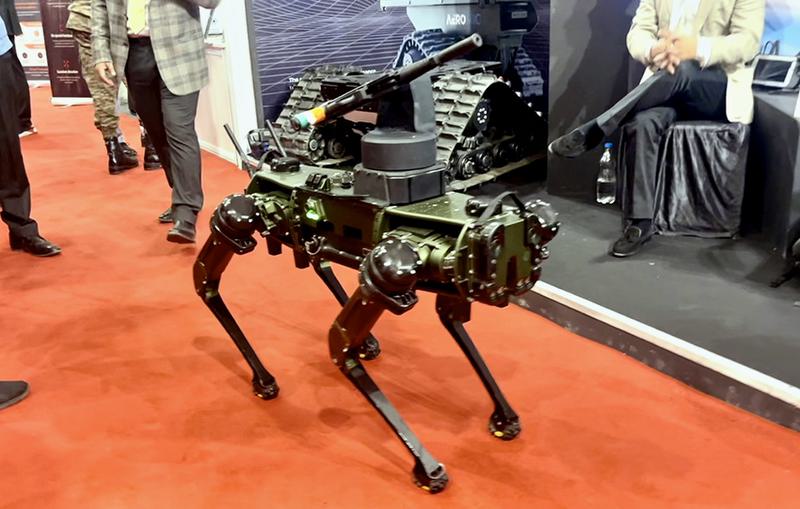ROBOTIC MULES AND HIGH-ALTITUDE INNOVATIONS IN THE ARMY

- 24 Sep 2024
In News:
The Army has inducted 100 robotic mules, known as Multi-Utility Legged Equipment (MULE), under the fourth tranche of emergency procurements (EP).
- Purpose: These robotic mules are designed for surveillance and transporting light loads across challenging terrains, especially in high-altitude areas.
- Specifications:
- Endurance: Capable of operating for up to three years.
- Temperature Range: Functions effectively in extreme temperatures from -40°C to +55°C.
- Payload Capacity: Can carry up to 15 kg.
- Mobility: Can climb stairs, steep hills, and traverse obstacles; waterproof and able to cross rivers.
- Sensing Abilities: Equipped with electro-optics and infrared capabilities for object recognition.
- Control Mechanisms: Operable via an easy-to-use remote control, Wi-Fi, or Long-Term Evolution (LTE) connections.
- Mission Programming: Can be programmed for specific missions using waypoints or pre-recorded tasks.
- Combat Integration: Capable of integration with small arms for military applications.
- Logistics Drones: Logistics drones are currently undergoing trials to enhance support and movement in forward areas, particularly in high-altitude conditions.
- High-Altitude Habitat Evaluation: A new tent designed for extreme cold environments (operating at temperatures down to -40°C) is under evaluation. This tent, called Peak Pods, is intended for use in sub-zero conditions.
- Evaluation Locations: The tent has been tested in three high-altitude sites:
- Leh (11,500 feet)
- Daulat Beg Oldie (16,700 feet)
- Durbuk (12,500 feet)
- Significance: These advancements reflect the Army's focus on technological innovations to enhance operational capabilities in high-altitude areas, especially following the 2020 stand-off with China in Eastern Ladakh.
- Funding and Timelines: The EP process allows contracts up to ?300 crore, with a requirement for delivery within one year.
